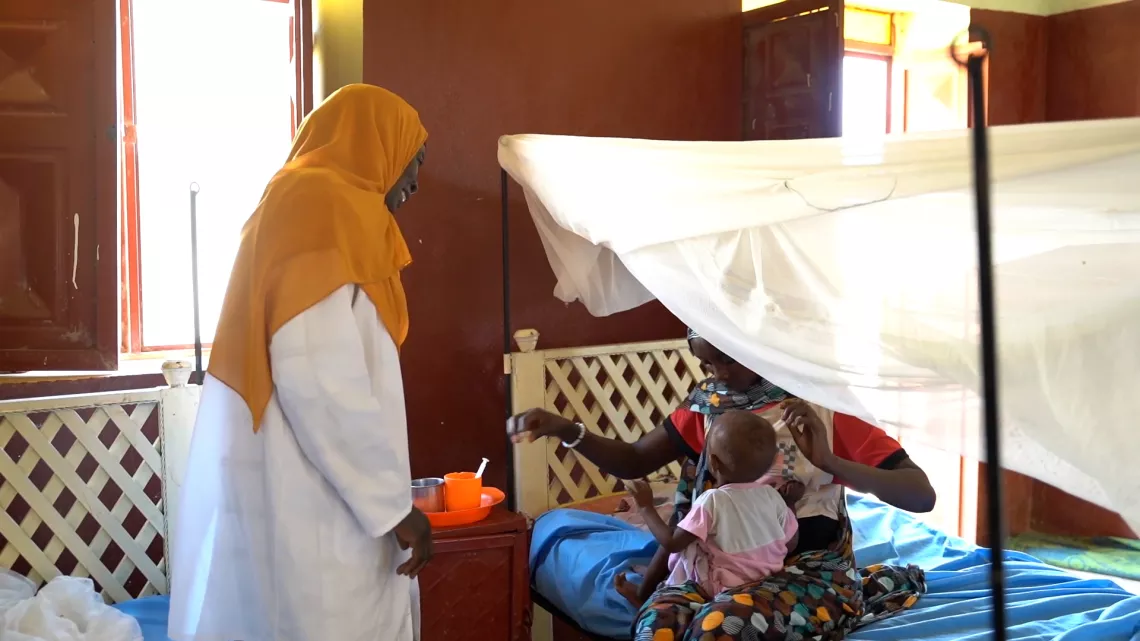
Sudanese Nurses: Heroes on the Frontlines of War and Pandemic
Sudan Media Forum
Khartoum – May 16, 2025 (New Horizon) – On an old boat, Magda crosses the White Nile to the western bank. "The mountain" (Jebel Aulia) is no longer her refuge—Rapid Support Forces have arrived and declared control over the Jebel Aulia area south of Khartoum. Like many others, Magda left everything behind. Yet one thing still preoccupied her mind: the local hospital where she had spent her entire career as a nurse. It was the last place she saw in her hometown, casting one final look before leaving. She made sure to lock the doors and windows, switch off the medical devices, and ensure no patients remained in their beds—then began her journey to safety in White Nile State. Along the way, questions haunted her: Who will care for the people now? Who will inject them? Who will replace their IV bags and catheters? She wished it were all just a nightmare that would end with the morning sun.
May 12 marks International Nurses Day, and it is celebrated in Sudan too. It is a moment to reflect on the hardships endured by nurses in a country gripped by war for the past two years. But despite these hardships, it is also a moment to honor their courage and resilience in the face of danger—nurses who held their ground on the frontline and never let go of their tools. Their stand in the fire line was noble—and unyielding.
"We had to fight our own war inside the war," Magda told New Horizon, recalling the ordeal she and her colleagues faced after the first spark of the conflict and the many battles that followed—fighting not with weapons but to provide a dose of medicine or perform an emergency procedure on the wounded. Especially after the government withdrew, and medical supplies, once barely sufficient, became almost nonexistent.
Added to that were the daily operational hardships: the absence of medical personnel, lack of fuel, power cuts, drug shortages, and even a lack of basic gauze. "We had to deal with all of that and still provide care," she said, "especially since the hospital served a densely populated area. We overcame all of it, but in the end, we were defeated by the sheer force of arms when the fighting reached the wards themselves. Survival became a war of its own. I managed to get out, but the fate of others remains unknown to this day—like the medical director of the emergency department at Jebel Hospital, Abdel Hamid Khamis Tawfiq. Everyone is still waiting to learn what happened to him, with no answer."
Given the account shared by the nurse who survived the war, you almost feel ashamed to ask her how she feels on Sudanese Nurses Day. The reality speaks for itself, and her story is just the title of a much larger book: “The Suffering of Medical Staff in Sudan During and Because of War.” In particular, nurses found themselves at the very heart of the conflict—a war that entered their hospitals, not one they chose to enter.
One nurse recounted a different kind of suffering: the targeting of medical personnel, whether inside hospitals, in the streets, or at checkpoints—accused, without proof, of supporting one side of the conflict. The charge of “collaboration” was always ready. Another nurse spoke of the pain of a shuttered hospital, and how she lost her job after the machinery of war destroyed the hospital where she had worked.
On Sudanese Nurses Day, one nurse summed up his feelings by saying:
"When I arrived at my workplace, I found my white coat stained with blood—not my blood, but that of a Sudanese man who had a family and a dream. War put an end to both."
Today, in wartime, there are no celebrations. Reports confirm that the targeting and assault on health facilities has become systematic rather than random. Health staff have been assaulted, hospitals looted, and healthcare delivery paralyzed—leaving no room for any celebration of Nurses Day. The irony is, there’s no one left to celebrate. Many nurses have fled Sudan in search of safety, escaping violence, political instability, and a complete breakdown in work conditions—no government salaries, no medical supplies in a Sudan strangled by closed roads.
Yet, despite all this, many nurses chose to stand on the frontline, fulfilling their duty to save lives amid the devastation. They did so in Al-Nau Hospital in Omdurman, run by volunteers—a beacon of light in the darkness of war—and in hospitals across the states they fled to. Some even risked their lives providing care to soldiers on both sides of the fighting, out of commitment to their oath. Many chose to stay in their cities, treating the sick with resilience in the face of danger. And their courage didn’t falter during outbreaks of disease—fevers, cholera—where nurses in Kosti, for example, stood strong against the spread, armed with duty alone.
Numerous nurses continued their mission even in displacement, especially female nurses who found work in their new host countries. This year, the International Council of Nurses adopted the theme: “Our Nurses. Our Future. The Economic Power of Care.” A slogan Sudanese nurses have truly embodied—becoming the economic lifeline for their families under immensely difficult conditions. It’s as though they are rewriting the meaning of sacrifice—just like Sit Alnofoor, the nurse and martyr of the revolution, who gave her life for a Sudan of freedom, justice, and peace.
In a country ravaged by war, strangled by economic crisis, and plagued by the collapse of its healthcare system—with images of destroyed hospitals in Khartoum, systematic looting of medical equipment, months of unpaid salaries for nurses, and daily stories of their bravery—there’s little we can offer them but a bouquet of flowers with a note that reads:
"Thank you, we appreciate you—dear nurses, heroes of Sudan."
--
Published by the Sudan Media Forum as part of journalists’ efforts to shed light on the collapse of the health system caused by the ongoing war.


